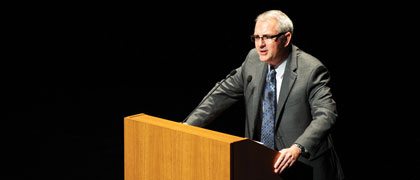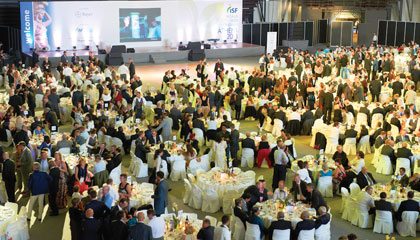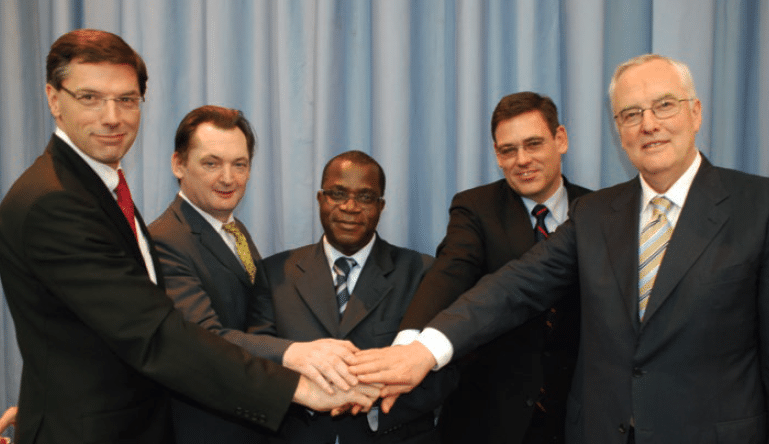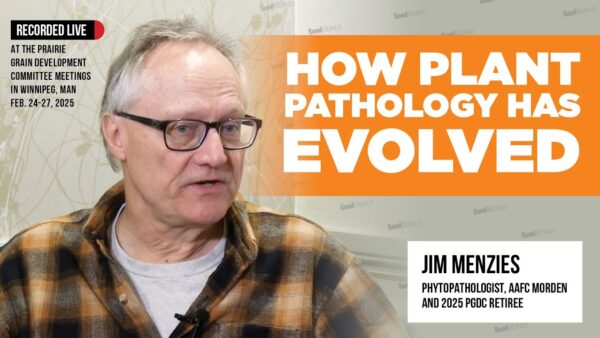World Congress Shows Seed Industry Vibrant as Ever
There was no shortage of opportunities to learn, network and trade for attendees of ISF’s 2013 World Seed Congress in Athens, Greece.
With 1,583 participants, the 2013 ISF World Seed Congress in Athens, Greece, celebrated a new record for attendance. Members of the seed industry from across the globe came together to meet in sunny Athens. The congress provided an excellent venue for seed experts to converse, learn, network and do deals.
ISF president Tim Johnson said during the opening ceremony that the federation is a strong believer in the benefits of the global movement of seeds to improve grower success around the world. Marcel Bruins, secretary-general of ISF, highlighted that in recent years services to ISF members have gone up, while the congress registration fee has gone down.
ISF president Tim Johnson offered his opening remarks at the 2013 ISF World Seed Congress in Greece.
The technical meetings during the congress were an opportunity for industry members to promote and share best practices. They also served as a forum for debate and an opportunity to receive the latest updates. ISF’s main goal is to facilitate the international seed trade, and from that viewpoint, delegates saw a distinguished lineup of speakers from the international arena on recent developments: the Commission on Phytosanitary Measures, the Nagoya Protocol, the OECD, the International Treaty on Plant Genetic Resources for Food and Agriculture, the International Seed Testing Association, the Global Crop Diversity Trust and the International Plant Protection Convention. These organizations have a potential impact on the seed industry, and ISF has contributed to shaping them.
Athens offered a picturesque backdrop for ISF delegates at this year’s congress.
Intellectual property and its enforcement were center stage during the forage and turf section meeting. Participants received interesting updates from UPOV and Breeders Trust. A panel discussion led to animated dialogue during the meeting of the field crops section. The panelists discussed the outcome of the ISF publication Collection Systems for Royalties in Wheat—An International Study. The importance of the Incoterms was underlined in the meeting of the trade and arbitration rules committee, and the seed applied technologies committee dedicated ample time for a presentation on the Compass Report, outlining the socio-economic value of neonicotinoids seed treatment.
The vegetable and ornamental section saw a changing of the guard from long-standing chairman Anton van Doornmalen to Vicente Navarro, and heard interesting presentations on how to do business in China and the SolCAP project. The Dutch ambassador to Greece honored the meeting with his participation. ISF’s work on an international standard for phytosanitary measures, specifically for seeds, was an important topic during the meeting of the phytosanitary committee.
During the congress, ISF adopted two position papers— ISF View on Low Level Presence in Seed and ISF Viewpoint on Indirect Seed Health Tests. Jean-Christophe Gouache of Limagrain, France, was elected as the new second vice president of ISF.
This year’s ISF World Seed Congress was abuzz with activity.
As is tradition, the trading floor was buzzing with activity, underlining the importance of the ISF World Seed Congress for international trade. The beautiful venues of the welcome party and gala dinner gave everyone the opportunity to have fun with friends and colleagues. During the closing dinner, the Greek Agriculture Minister Athanasios Tsaftaris addressed the audience on the importance of high-quality seed and investment possibilities in Greece. The congress showed that the Greek seed industry and farmers have experience in the multiplication of seed and can secure high-quality production combined with a high yield. Greece, due to its placement on the map, provides an excellent hub for managing business in southern Europe.
The next ISF World Seed Congress will take place in May in Beijing, China.
Marcel Bruins















